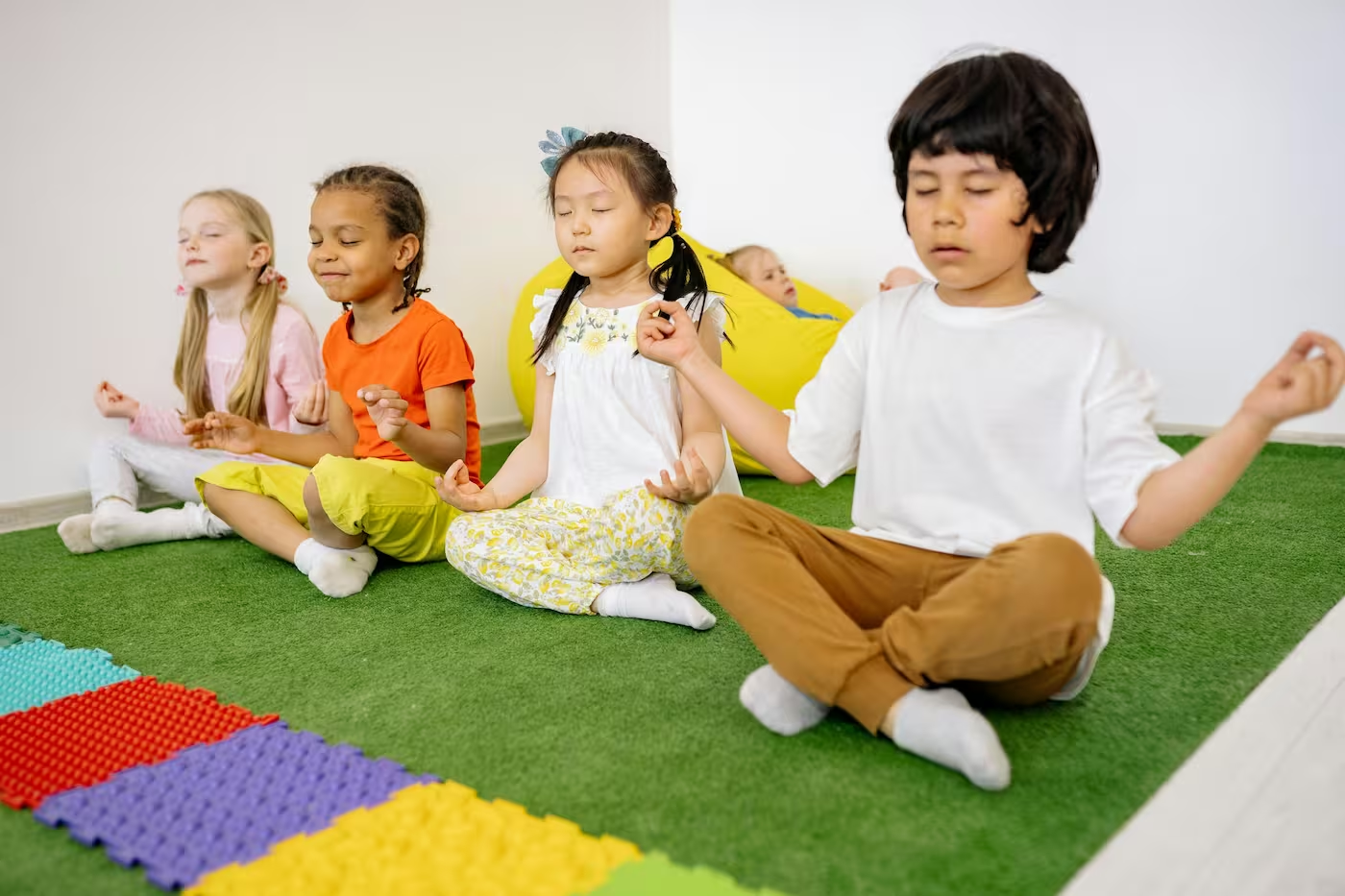When to Take a Mental Health Day: A Guide for Parents and Students

Mental health days for students are gaining recognition as essential tools for supporting children’s well-being in an increasingly demanding world. Just as we allow time off for physical illness, taking a day to rest, rebalance, and care for mental health is a proactive way to protect a child’s emotional and cognitive development; provided these days are indeed focused on supporting one’s mental health in thoughtful and purposeful ways.
For parents, the idea may prompt questions: How do I know if my child needs a mental health day? Will it affect their academic performance? What should the day look like? This guide offers insights and practical tools to help you make those decisions with confidence and compassion.
Why Mental Health Days Matter—and What They Really Are
Mental health days are short-term breaks from academic demands, designed to help students recover emotionally, mentally, and even physically. Importantly, they are not a way to avoid responsibilities or difficult situations, but a structured opportunity for genuine self-care.
Unlike avoidance, which can reinforce anxiety or disengagement, intentional mental health days support long-term coping and resilience.
Benefits for Children:
- Emotional Recharge: Promotes emotional stress reduction and overload.
- Prevents Burnout: Reduces chronic stress that can lead to academic disengagement or compromised well-being/mental health health.
- Builds Coping Skills: Models healthy self-regulation and self-awareness, as well as responsibility and accountability.
- Reduces Physical Symptoms: Stress-related headaches, fatigue, and stomach aches often improve.
Research shows that students experiencing chronic stress perform worse academically and may have greater risk for depression. By allowing space to reset, mental health days can improve focus, mood regulation, and even immune health—contributing to improved academic performance over time. These findings also underscore the interconnectedness of the body’s systems when impacted by chronic stress. While short term stress confers various benefits, prolonged stress can imbalance the body’s other systems– having further impacts on nervous system and mood health. In short, unchecked stress can contribute to poor mental health over time.
Signs Your Child May Need a Mental Health Day
While each child is different, there are consistent behavioral, emotional, and physical indicators that may signal the need for a mental health break. Recognizing these signs early can help prevent deeper struggles.
Key Indicators:
- Withdrawal from friends, family, or favorite activities
- A sudden decline in school motivation or performance
- Increased irritability, mood swings, or emotional outbursts
- Trouble sleeping or sleeping too much
- Frequent headaches, stomachaches, or unexplained fatigue
- Saying they feel “overwhelmed” or “can’t handle school”
These signs often mirror those seen in early stages of anxiety or depression, and addressing them early can buffer more serious mental health concerns later on.
Benefits of Mental Health Days for Students:
Mental health days allow the nervous system to downshift, improving overall wellness across emotional, cognitive, and physical domains. Supporting nervous system balance and regulation is important for various other aspects of health that affect school— including physical health (immune, metabolic) and emotional/mental health.
How to Implement an Effective Mental Health Day at Home
Creating a structure that supports rest—without turning into avoidance or indulgence—is key. Here’s how to plan a mental health day that helps your child reset and recharge:
- Recognize the signs
Tune into your child’s mood, behavior, and stress levels to determine what the day may look like for recharging. For instance, if your child is really stressed and has been staying up late most nights to finish homework, study or with extracurricular activities, like sports, encourage them to get to bed early the night before their mental health day. This helps to promote quality sleep and restoration, while encouraging them to utilize their mental health day to full capacity. You may encourage your child to unplug a bit during the day and instead get outside in nature together. If your child is behind on school work and it has been stressing them out, you may consider having them also carve out some light time (if they feel up to it) to get caught up a bit. - Decide together on timing
Choose a day with minimal academic disruption if possible in school, so this won’t lead to more stress. As noted, if your child wants to utilize some of the day to get caught up with school work, encourage them to first take care of themselves in the beginning part of the day– ensuring basic needs, such as rest, hydration, sunshine, nourishment and connection. If they are going to be doing school work, have a time limit in place– like 2 hours max for school work completion, so they can focus on recharging in other ways. - Communicate with school if needed
Use language like, “My child needs a day to recharge mentally,” in line with school policy. - Plan low-pressure, replenishing activities
Prioritize rest, creativity, light movement, and connection. Getting fresh air and sunshine can also support stress levels in various ways— including circadian rhythm balance, reducing inflammation, while supporting immunity and mood. As noted, if your child is going to be getting caught up with some school work, ensure this won’t be further detrimental to their mental health and that it is for an allotted amount of time. - Check in at the end of the day
Reflect together: Did the break help? What might they need moving forward? You may also want to discuss with your child if it would help to have you there as their caregiver for emotional support.
How Parents Can Support the Process
Your presence and validation are more impactful than any structured plan. Showing your child that their mental health matters lays a foundation of trust and resilience.
Supportive Ways to Show Up:
- Listen actively without trying to fix everything
- Avoid over-scheduling or making the day task-heavy; ultimately tune in and listen to your child to see what they need.
- Create space for unstructured quiet time
- Suggest gentle, screen-free options like puzzles, journaling, or walks
- Celebrate their awareness of needing a break
Do:
- Validate their feelings
- Stay emotionally available
- Encourage reflection without judgment
Don’t:
- Dismiss their needs or say “You’re just being lazy”
- Use the day as punishment or guilt trip
- Over-plan every minute—rest is the goal
When a Mental Health Day Isn’t Enough
While one or two mental health days can be helpful, if your child repeatedly asks to stay home, or symptoms persist, it could be a sign of a deeper issue that needs clinical attention.
Red Flags That Warrant Further Support:
- Frequent or chronic school refusal
- Ongoing sadness, irritability, or anxiety (lasting more than 2 weeks)
- Loss of interest in previously enjoyed activities
- Dramatic sleep or appetite changes
- Social withdrawal or expression of hopelessness
In these cases, a mental health provider can help assess your child’s needs and offer evidence-based support.
If you need professional help, Handspring Health is here for you. Reach out for a free consultation with one of our expert child and adolescent therapists.
Frequently Asked Questions
Q1: How do I talk to my child’s school about taking a mental health day?
A: Be clear and respectful. Try saying, “My child needs time to rest and regroup emotionally.” Share more detail only if necessary and ensure your request aligns with the school’s attendance policy.
Q2: What should my child actually do during a mental health day?
A: Rest and emotional replenishment are key. Ideal activities include:
- Rest: naps, reading, quiet time
- Connection: talking with family
- Creativity: drawing, music, journaling
- Nature: walking, birdwatching, gardening
Avoid overstimulation—especially from screens.
Q3: How can I make sure a mental health day doesn’t derail schoolwork?
A: Encourage light catch-up time later in the week. Choose days with fewer deadlines. Help your child make a short list of to-dos for later in the week or very light for that day (provided this aligns with you and your child’s vision for the day) and celebrate their follow-through with small rewards or affirmations.
Final Thoughts
Taking a mental health day is not about letting kids “get away” with avoiding school. It’s about prioritizing their mental and emotional well-being in the same way we care for their physical health. With open communication, emotional support and validation, a sense of structure, and an awareness of deeper needs, mental health days can become part of your child’s stress toolkit.



